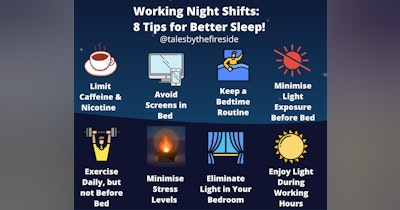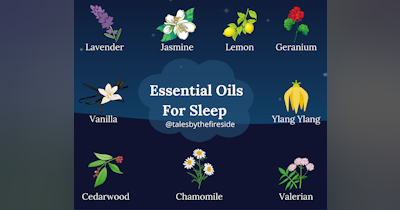What are nightmares?
Nightmares can be described as vivid dreams which may be scary, upsetting, strange or even bothersome. This type of dream mostly occurs during rapid eye movement (REM) sleep, this is the sleep stage most associated with dreaming. It is also more frequent for a nightmare to occur in the second half of the night, after more time spent in REM sleep. Everyone’s dreams are different but some of the most common nightmares include escaping danger, falling from a great height or your teeth falling out. When you wake up from a nightmare, it is very normal to feel upset, anxious and scared. You may also experience sweating or a rapid heart rate.
Nightmares are common in both children and adults, and we can expect to experience them every so often. Many experts believe that dreaming, good or bad, can help us process our emotions or consolidate memories.
There are many reasons why you may be experiencing nightmares. It could be random, due to stress or anxiety, late night eating, new medication, stimulants, sleep deprivation, or even just watching too many scary movies. However, this being said, if your nightmares become frequent for a prolonged period you should reach out to your GP as they may be another cause for it.
As you may know all too well, nightmares can disrupt your sleep, leaving you tired, groggy and anxious. If you’ve had a few nightmares lately, here are a few tips which can help you prevent and manage them.
Eating 3-4 hours before sleeping
If you eat too close to bedtime, you may get indigestion which can influence your metabolism and disturb your sleep leading to nightmares. To avoid this, try eating dinner at least 3-4 hours before sleeping. The types of food you eat may also impact your sleep, therefore, consider avoiding junk food or spicy meals. If you need an extra hand drifting off to sleep, try a cup of herbal tea before bed such as chamomile or lavender.
Talk about your nightmares
You may be able to avoid nightmares by talking them through with a friend, partner or relative. By confronting your dreams, it may help you put them into perspective, reducing the anxiety following the nightmare and helping you come to terms with what may be disturbing your sleep.
Adjust the room temperature
If your room is too hot or cold, you may experience restless sleep, more awakenings and therefore, more nightmares. Try to ensure the room is between 15-21°C, as this is the ideal sleeping temperature (however, do bear in mind, that this temperature may vary from person to person). If you’re too hot or cold at night, consider opening or closing a window, using the heating effectively, investing in a the appropriate duvet thickness or ensuring your pyjamas are suitable.
Keep a Bedtime Routine
Nightmares can occur when you are over tired, therefore, keeping a regular sleeping pattern can reduce these terrible dreams. Try having a regular evening relaxation routine, bedtime and waketime to support your internal clock. Although it may be tempting to enjoy a lie in at the weekend, it may reset your sleep cycles and impact your sleep throughout the week. If for work or lifestyle reasons you cannot maintain a regular sleeping pattern, try restricting late nights where possible and make sure to treat yourself to an early night every so often.
Write your nightmare down & change the ending
Writing down your nightmares either after they happen, or the following day can help reduce the frequency. If you wake up from a nightmare feeling scared or anxious and it prevents you from falling back asleep, try getting out of bed and writing the dream down. After you have completed this, try writing out a new version of the same dream, one with a positive ending. You can go over this new scenario daily to decrease the intensity of the original nightmare. This method is known as Image Rehearsal Therapy and is a well-researched type of Cognitive Behaviour Therapy that is highly recommended.
Exercise daily
Engaging in daily exercise, whether it’s a run, yoga, aerobics or just a stroll around the block, often helps people sleep more deeply and avoid nightmares. For maximum benefit, try to exercise about 5-6 hours before heading off to bed. This is especially important if you are currently experiencing a lot of stress or anxiety, as the exercise can release endorphins which make you feel happier and calmer.
Try meditation
Stress and anxiety can affect how we sleep and how we dream. When we are going through challenging circumstances, feeling alone or simply just worried about day-to-day life, nightmares can occur. To avoid nightmares, try clearing your mind and relaxing before bed. One method to do this is by meditating. Although it sounds tricky or difficult, I’ve a number of guided meditations and visualisations which can help you clear your mind, switch off and drift off easier. If after you fall asleep you still wake up with nightmares, try repeating the meditation to calm yourself down, clear your mind and drift off again.
Invest in blackout curtains
As humans were designed to sleep in the dark and use the light as an indicator of when to wake up, light sources may prevent melatonin from being released and sleep can be affected. Therefore, try removing all light sources such as TVs or alarm clocks and consider investing in a sleep mask or some blackout curtains. Research indicates that ‘blue’ light from electronics such as tablets or TVs affect our circadian rhythm and thus, our sleep, so try turning these off at least 30 minutes before bed. If you require lighting for any purpose such as reading or getting to the bathroom safely, try using a red lamp bulb or app as red light does not impact melatonin.
Diffuse essential oils
Research has shown that pleasant aromas whilst sleeping can impact your dreams. Whereas the scent of rotten eggs may trigger nightmares, smelling roses may provide more positive dreams. To keep the nightmares at bay, try using essential oils either by putting a few drops on your pillow or using a diffuser at night. Sleep inducing scents include lavender or chamomile.
Avoid caffeine, alcohol and nicotine
Having caffeine, alcohol or nicotine within a few hours of bed can stimulate the mind making it harder to fall asleep and causing many sleep issues, including nightmares. Try limiting your caffeine throughout the day, by stopping intake or coffee or black teas at around 2pm. It is also wise to avoid other stimulants close to bedtime to achieve a healthy restful night’s sleep.




















